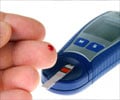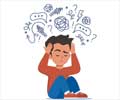Take Medindia's Life Stress Test (Life Stressor Chart) to check out how stressful your life is and make the necessary lifestyle changes before it is too late. Learn more about the ways to deal with
stress and relaxation techniques.
Are you stressed too much? Stress is a condition or situation that places a demand on the body's physical, mental and emotional energy. Stress is a part of everyone's life and natural activation of the body's stress-response system gives you extra strength and courage to be alert and stay focused. However, chronic stress can threaten your physical and emotional well-being and trigger health problems such as anxiety disorder, depression, sleep problems, diabetes, heart disease, digestive problems and many psychosomatic illnesses.
When you come across a challenging situation, your body swiftly releases a surge of hormones such as adrenaline and cortisol to tackle the crisis and you experience some physical and emotional changes like faster heartbeats, increased blood pressure, fear, anger, confusion, and sweating. If you have successfully overcome that particular challenge and your body returns to the relaxed state then, such a situation is termed as "good" or "acute stress". On the other hand, if the stress is continuous and you are not relaxed, then it is called "bad" or "chronic stress".
Take Medindia’s Life Stressor Test that is designed to provide a reliable and comprehensive evaluation of your stress levels by utilizing the authentic Holmes and Rahe scale, a widely recognized tool in stress assessment. By taking into account significant life changes, such as job loss, illness, or relocation, the test gives you an accurate stress score, helping you understand how current life stressors may be affecting your health (
1✔).
What is Stress?
Stress can be defined as a state of worry or mental tension caused by a difficult situation.
Stress is the body's response to whatever demand or challenge that may arise, whether physically, emotionally, or psychologically. It typically occurs when the brain perceives a situation as overwhelming or even threatening. Stress can either be acute or chronic (
2✔).
What Causes Stress?
Stress can be triggered by various factors, known as stressors, such as:
- Work pressure or job loss
- Financial problems
- Health issues or chronic illness
- Relationship conflicts
- Major life changes (e.g., moving, marriage, loss of a loved one)
- Environmental factors (e.g., noise, overcrowding)
Signs of Stress
Stress manifests in various ways, affecting our body, emotions, and behavior. Common signs of stress include:
Emotional Signs:- Feeling anxious, irritable, or overwhelmed
- Restlessness or feeling on edge
- Mood swings or emotional outbursts
Cognitive Signs:- Difficulty concentrating or focusing
- Racing thoughts or constant worrying
- Forgetfulness and disorganization
Physical Signs:- Headaches, muscle tension, or body pains
- Upset stomach, nausea, or digestive issues
- Trouble sleeping (insomnia) or sleeping too much
- Changes in appetite (overeating or loss of appetite)
- Fatigue or feeling drained
Behavioral Signs:- Increased use of alcohol, tobacco, or other substances
- Withdrawal from social activities
- Changes in work or school performance
- Nervous habits, such as nail-biting or pacing
If stress becomes chronic, it may also contribute to or worsen pre-existing mental health conditions like anxiety or depression, which can impact daily functioning and require professional healthcare.
FAQs
1. How does stress affect the immune system?
Chronic stress weakens the immune system, making it harder for the body to fight off infections and recover from illness.
2. Can stress cause weight gain?
Yes, stress can lead to weight gain, often due to emotional eating and increased levels of the stress hormone cortisol, which promotes fat storage.
3. Is stress hereditary?
While stress itself isn’t hereditary, a family history of anxiety or depression can make individuals more prone to stress-related disorders.
4. Can stress cause hair loss?
Yes, severe or prolonged stress can trigger hair loss conditions like telogen effluvium, where hair shifts prematurely into the shedding phase.
5. How does stress affect the heart?
Stress increases heart rate and blood pressure, and over time, chronic stress can contribute to heart disease and high blood pressure.
6. What is the Social Readjustment Rating Scale (SRRS)?
The Social Readjustment Rating Scale (SRRS)/Holmes and Rahe Stress Scale is a tool developed by psychiatrists Thomas Holmes and Richard Rahe. Holmes and Rahe created the Social Readjustment Scale to measure a person's stress in 1967 based on significant life events. It is widely used in psychology and medicine to predict the likelihood of stress-related illnesses.
7. What are the most stressful life events?
The most stressful life events, according to the Holmes and Rahe Stress Scale, include Death of a spouse, Divorce, Separation, Death of a close family member, Major injury or illness, Marriage, Job loss, Retirement, Change in financial status and Moving to a new home.These events can significantly impact mental and physical health, increasing the risk of stress-related issues.
8. What are the holmes and rahe stress scale criticism?
The Holmes and Rahe Stress Scale faces criticism for its reliance on subjective self-reports, cultural bias, and neglect of daily stressors and individual resilience. It also struggles with overlapping life events and lacks consideration of the duration of stress exposure.
Recommended Readings on Stress
Explore what causes teen stress and discover practical tips to overcome it. Gain insights and use tools to help teens manage and reduce stress
Blood pressure is the pressure of the blood flowing through your blood vessels against the vessel walls. Just by entering you age, you can get the accurate range of blood pressure value.
The blood sugar chart gives you the fasting glucose values and glucose tolerance test values for normal people and people with early diabetes and established diabetes. Also use the calculator to find out if you have diabetes.
Use these Health Screening Guidelines that list the medical conditions you should be screened for in your next health check-up.
Eating plans may go haywire during stress, but with a little effort you can put up a well balanced nutritious meal that can help with stress management.
Response given by the body to any kind of demand is called stress. Both good and bad experiences can cause stress. Knowing how to manage stress is important for physical and mental well-being.
Depression can be a severe mental health problem that can lead to other health issues. Find top foods that can help fight depression.
Stress has become entwined in the current lifestyle of a young working couple and has resulted in the rise in incidence of hypertension, diabetes and psychosomatic illnesses.
Encyclopedia section of Medindia explaining about the various tests done for stress incontinence
Tap into the powers of mind-body therapy called yoga and find out how you can use yoga for effective stress management.
Depression occurs due to alterations in the levels of neurotransmitters in the brain.
Animation for yoga asanas. Yoga helps to maintain a healthy balance of the body,with its set of movements or exercises
Interactive section of Medindia provides information about chemistry of Brain depression
Introduction
Stress has become one of the major health concerns in the modern world, but it is still difficult to define. Stress is a normal physical response when faced with a challenge, and in small doses, stress can ...
The World Health Organization reports that depression is one of the main causes of disability affecting about 121 million people worldwide. More tragically, it claims around 850,000 lives every year. Hence, it is important that we understand this ...
Online Depression Screening Test tells if you have mild or chronic depression based on your depression symptoms. Learn how to deal with depression by using this self-assessment calculator.
People with PTSD find it difficult to communicate. Take this quiz on Post-Traumatic Stress Disorder to understand the condition and help you deal with it ...
Work-related stress has many causes and symptoms. But there are ways workplace stress can be managed with ease.
Physical symptoms of stress on the body are varied, ranging from hormonal changes to changes in the nervous system, manifesting as the flight-fight-freeze response.
Chronic stress is bad for physical and mental health. Get best tips on how to de-stress and get on the path to live a healthy and balanced life.
Hair loss due to stress can be a cause for anxiety. Stress causes telogen effluvium, trichotillomania, or alopecia areata.
Find out causes, symptoms and how to prevent work-related injury. Work-related injury or illness that occurs as a direct result of events or exposures in work environment can get workers' compensation.
Top ten stress reliever drinks to combat stress, anxiety and insomnia. With stress levels at an all time high, more people are turning to safer and more natural solutions. Find back to nature drinks listed here.
























I cannot say anything right now. But this attempts is not bad.